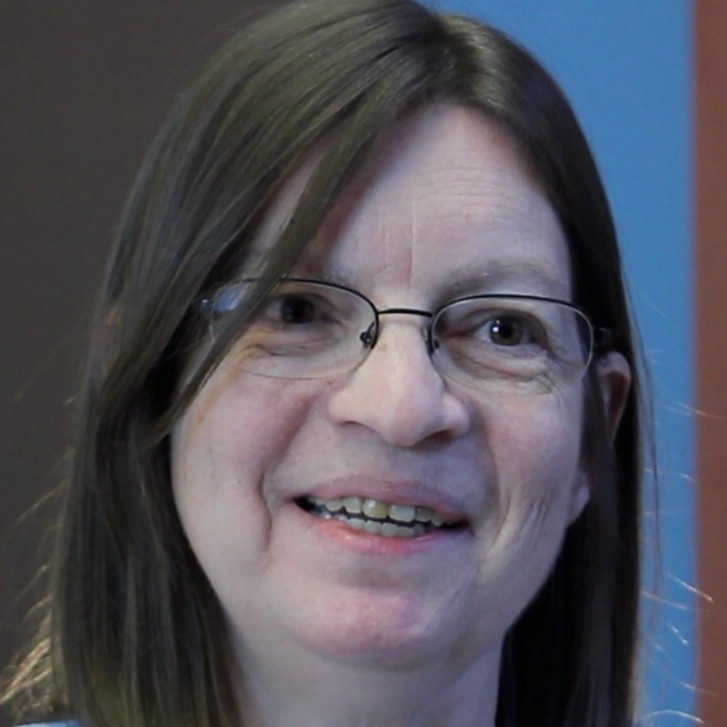Interview with Sheri Byrne-Haber

Every week, we meet with audience members with disabilities who are willing to come forward and share a little bit about their own personal journey and experiences, attending live, in-person, or virtual speaking or training events. Through their unique and generous perspectives, speakers, trainers, facilitators, and other communication professionals can hopefully learn about some of the things that they do well, but also (and maybe more importantly) about some of the things they could improve to provide an experience that is truly inclusive of everyone.
Meet Sheri, an audience member who uses a wheelchair, has glaucoma, and experiences hearing loss
So without further ado, let’s dive right into this week’s interview with Sheri Byrne-Haber (she/her). Sheri uses a wheelchair, has glaucoma, and experiences hearing loss. She comes to us from California, USA.
Introductions
QUESTION 01 Can you tell us a bit about yourself, and how your disability might impact your experience, as someone who attends live in-person and virtual events?
I have a congenital mobility disability and use a wheelchair to get around longer distances. I also acquired vision loss through glaucoma and hearing loss through an autoimmune condition.
Things that ruin the experience
QUESTION 02 Thinking back on some of your experiences attending in-person or virtual events, what are some of the worst things speakers, trainers, and other communication experts can do to ruin your experience as an attendee?
Not having captions, not having a microphone runner, having seating that can’t be easily rearranged for wheelchairs, having visual presentations with poor contrast, having buffet tables too high, having events on grass.
Things that make a positive impact
QUESTION 03 Can you share some of the great things speakers, trainers, and other communication experts sometimes do that make a positive impact on your ability to fully enjoy your in-person or virtual event experiences?
They ask about disabilities on the registration page, and then reach out and ask me what I need. They make sure everything important on a slide is integrated into their speaking points for that slide.
Sharing a piece of advice
QUESTION 04 If you had one piece of advice to give speakers, trainers, and other communication experts, so their content became more inclusive of people who have disabilities, what would it be?
Run the PowerPoint accessibility checker on your deck, and ask yourself on every slide:
- how would someone with hearing loss equally access this information?
- how would vision loss visually equally this information?
- how would someone who is neurodiverse access this information?
Wrapping up
QUESTION 05 Thank you for sharing some of your insights with us today. As we wrap up our conversation, is there anything that you’d like to add, such as another thought, another piece of advice, another perspective, etc.?
On top of the accessibility checker recommendations in PowerPoint, here are additional questions to ask when it comes to in-person events:
- how would someone with mobility disabilities access everything at the event?
- how would someone with Long COVID access everything at the event?
- can people with dietary constraints make specific food requests?
Connect with our guest on social
Interested in knowing more about our guest this week? You can follow Sheri on LinkedIn and Twitter.

About Denis Boudreau
Denis Boudreau is a consultant, trainer, and speaker specializing in digital accessibility and disability inclusion. He works with organizational leaders who want to equip their teams with the skills to create accessible websites and digital products – so no one is left behind. A Certified Professional in Web Accessibility (CPWA), Denis has trained thousands of web professionals over the past 20+ years and delivered hundreds of workshops in both English and French. He has helped leading brands like Netflix, Salesforce, and Victoria’s Secret embed accessibility into their digital strategies, empowering them to meet legal obligations, improve user experience, and connect with more people, more effectively.
